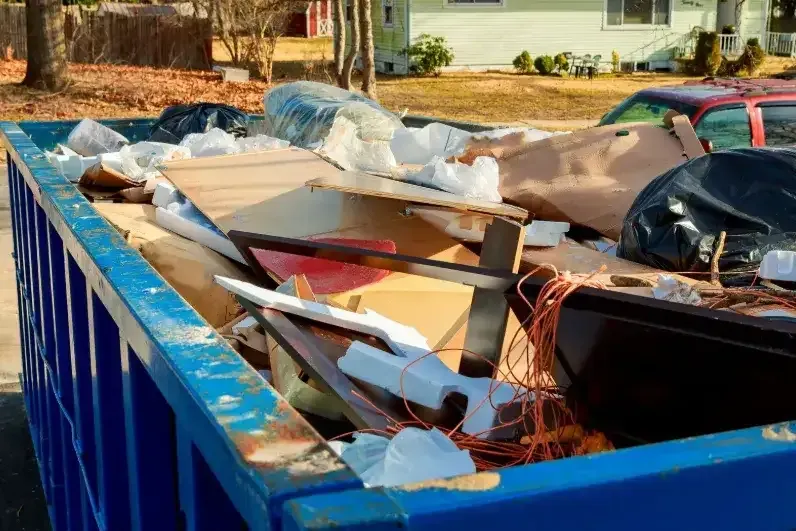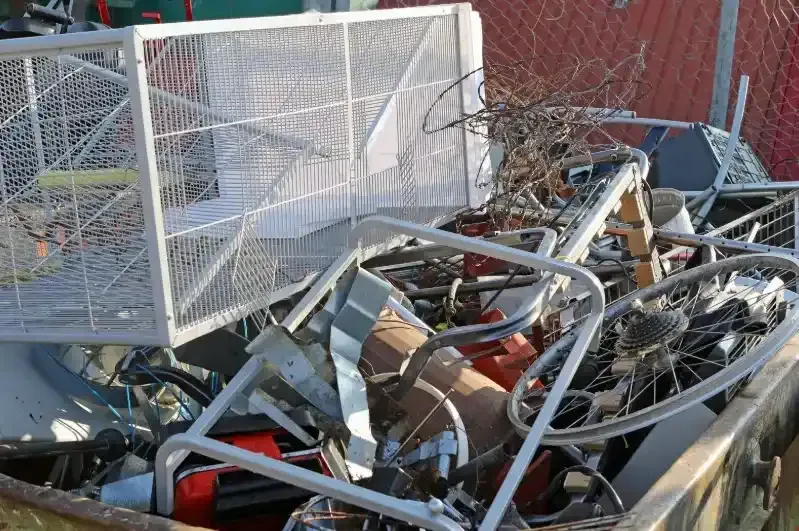How Scrap Metal Recycling Contributes to Economic and Environmental Benefits
In an era where sustainability has become an essential focus for both businesses and individuals, scrap metal recycling stands out as an often underappreciated yet highly effective practice that brings together economic and environmental benefits. As we face the increasing challenges of resource depletion, pollution, and climate change, recycling scrap metal offers a practical solution. It not only helps conserve precious natural resources but also reduces the environmental damage caused by mining and manufacturing new metals. By reprocessing metals, we cut down on harmful emissions, conserve energy, and decrease landfill waste.
Additionally, the recycling process contributes significantly to the economy by creating jobs, reducing production costs, and fostering the development of new technologies. As we move toward a more sustainable future, understanding and participating in scrap metal recycling is crucial—not only for environmental health but also for promoting long-term economic stability. This practice bridges the gap between responsible resource management and economic growth, making it a win-win solution for our planet and society.
The Environmental Imperative
The environmental benefits of scrap metal recycling are profound and multifaceted. Recycling metals significantly reduces the need for mining, a process that is both energy-intensive and environmentally disruptive. By reprocessing existing metal, we minimize the ecological footprint associated with extracting and refining raw materials.
For instance, recycling aluminum saves up to 95% of the energy required to produce it from raw ore, while recycling steel saves about 60% of the energy compared to producing it from iron ore. These energy savings translate into substantial reductions in greenhouse gas emissions, contributing to the fight against climate change.
Moreover, recycling metals reduces the volume of waste sent to landfills, conserving space and preventing soil and water contamination. Metals can take hundreds of years to decompose, and their presence in landfills poses long-term environmental risks. By diverting scrap metal from landfills, we mitigate these risks and promote a cleaner environment.

Economic Advantages
Beyond environmental considerations, scrap metal recycling offers significant economic benefits. The recycling industry is a substantial contributor to the economy, providing employment opportunities and generating revenue. In the United States alone, the scrap recycling industry employs approximately 500,000 people and generates over $100 billion annually. Recycling metals also reduces production costs for manufacturers. Recycled metals are often less expensive than virgin materials, allowing companies to produce goods at lower costs.
This cost-effectiveness can lead to lower prices for consumers and increased competitiveness in the global market. Furthermore, the recycling industry stimulates innovation and technological advancement. The need for efficient recycling processes drives research and development, leading to the creation of new technologies and methodologies that can be applied across various sectors.
Resource Conservation
The conservation of natural resources is one of the most critical benefits that scrap metal recycling offers. Many metals, such as iron, aluminum, and copper, are finite resources, meaning they are not infinite and are becoming increasingly scarce. By recycling these materials, we ensure their continued availability for future generations, reducing the pressure on natural reserves. Recycling metals also decreases the environmental toll of raw material extraction, which is a process that involves significant disruption to the environment. For example, recycling one ton of steel can save 2,500 pounds of iron ore, 1,400 pounds of coal, and 120 pounds of limestone.
These significant reductions not only preserve essential materials but also mitigate the need for resource-intensive mining and processing activities. In turn, this helps preserve habitats, reduce soil erosion, and minimize pollution associated with extraction operations. By recycling metal, we create a more sustainable cycle of material use that benefits both the environment and future generations who will rely on these resources.
Energy Efficiency
Energy efficiency is a cornerstone of sustainable practices, and scrap metal recycling excels in this area. The amount of energy required to recycle metals is considerably less than that needed to extract and process raw metals from ore. This significant reduction in energy consumption lowers the demand for fossil fuels, decreases greenhouse gas emissions, and helps decrease the environmental impact of the manufacturing process. For instance, recycling copper saves up to 85% of the energy needed to create new copper from raw ore.
Such energy savings not only reduce the reliance on finite energy sources, such as coal, oil, and natural gas, but also make a substantial contribution toward mitigating climate change. The reduction in energy consumption across the recycling sector also decreases the overall carbon footprint of metal production, fostering a cleaner, more sustainable future. By embracing recycling on a larger scale, we can help reduce energy usage across the board, contribute to cleaner energy alternatives, and create a more energy-efficient economy.
Pollution Reduction
Scrap metal recycling plays a crucial role in reducing pollution across the globe. The processes involved in mining, refining, and manufacturing metals from raw materials often result in significant pollution, with harmful emissions released into the air, water, and soil. By recycling metals, we reduce the need for these processes, cutting down on the pollutants associated with them. Mining and refining release carbon dioxide, methane, and other harmful gases that contribute to global warming, while metal extraction can also lead to water contamination due to chemicals and heavy metals seeping into rivers and groundwater.
Recycling minimizes the need for new mining and the associated pollution, protecting ecosystems and improving public health. Furthermore, when metals are recycled, they are processed in ways that are far less harmful to the environment, reducing the risk of toxic substances leaching into the soil and water from landfills. Proper recycling ensures that metals are safely reprocessed, keeping harmful materials out of the environment and helping to preserve public health and safety.
Economic Resilience
The recycling industry fosters economic resilience by contributing to the development of a circular economy, where materials are reused, repurposed, and recycled instead of discarded. This model of sustainable production reduces dependence on raw material imports and stabilizes supply chains, which helps protect economies from the fluctuations and volatility of global commodity markets. In times of economic uncertainty, recycling offers a valuable buffer against price hikes in raw materials or shortages due to disruptions in supply chains.
For instance, during periods of resource scarcity or economic downturn, the ability to recycle scrap metal ensures that manufacturing processes can continue without needing to rely on fresh extraction, which can be costly and time-consuming. Additionally, by reducing the environmental impact associated with mining and production, recycling helps industries avoid the high environmental costs of raw material extraction. This resilience not only enhances the stability of the economy but also ensures that industries remain productive and competitive in a dynamic global market.
Job Creation and Community Development
Scrap metal recycling plays a vital role in supporting job creation and community development. The recycling industry generates employment opportunities at various stages, including the collection, sorting, processing, and marketing of recycled metals. From truck drivers and metal sorters to facility managers and administrative staff, the industry provides jobs for thousands of people around the world. These roles are not only valuable to individuals but also contribute significantly to the economic vitality of communities.
These initiatives encourage environmentally responsible behaviors and create a culture of sustainability within local communities. Furthermore, recycling operations frequently invest in community development projects, which can include educational programs, environmental clean-ups, and public awareness campaigns. By empowering communities to adopt more sustainable practices, the scrap metal recycling industry helps create stronger, more resilient societies.
Technological Innovation
The scrap metal recycling industry is a driving force for technological innovation. As the demand for more efficient and sustainable recycling practices grows, the industry has pushed for the development of advanced technologies to streamline the sorting, processing, and repurposing of metals. Innovations such as automated sorting systems, high-efficiency furnaces, and environmentally friendly processing methods have revolutionized the industry. These technologies not only improve the efficiency and cost-effectiveness of recycling but also minimize the environmental impact of metal processing.
Additionally, advances in processing technologies enable recyclers to recover more materials from scrap, ensuring that fewer resources go to waste. These technological breakthroughs have ripple effects across other industries, fostering innovation beyond recycling. By investing in research and development, the recycling industry helps spur broader industrial advancements that benefit a range of sectors, from manufacturing to energy.
Global Impact
On a global scale, scrap metal recycling plays a crucial role in sustainable development. By reducing the environmental impact of metal production, conserving resources, and supporting economic growth, recycling contributes to the achievement of global sustainability goals.
International cooperation in recycling initiatives promotes the sharing of best practices, technologies, and resources, fostering a collaborative approach to environmental conservation and economic development.
Conclusion
In conclusion, scrap metal recycling serves as a vital cornerstone in the pursuit of both environmental sustainability and economic prosperity. Its benefits stretch far beyond just conserving resources and improving energy efficiency. Recycling metal helps reduce pollution, providing a cleaner, healthier environment for future generations. It also strengthens economic resilience by fostering job creation, boosting local economies, and ensuring industries have access to a steady supply of affordable materials. Moreover, technological innovations spurred by the demand for more efficient recycling methods benefit not only the industry itself but also many other sectors of the economy. The global impact of recycling cannot be understated, as it contributes to achieving international sustainability goals and mitigates the environmental challenges posed by traditional manufacturing practices.
For those in Gwinnett County eager to make a positive impact, Lasso & Load Junk Removal offers reliable and professional services for all your scrap metal recycling needs. With a commitment to sustainable practices and community involvement, Lasso & Load Junk Removal is dedicated to ensuring a cleaner, greener future. Reach them at 404-227-2017 or via email at Lauren.renwickk@gmail.com to start contributing today.









